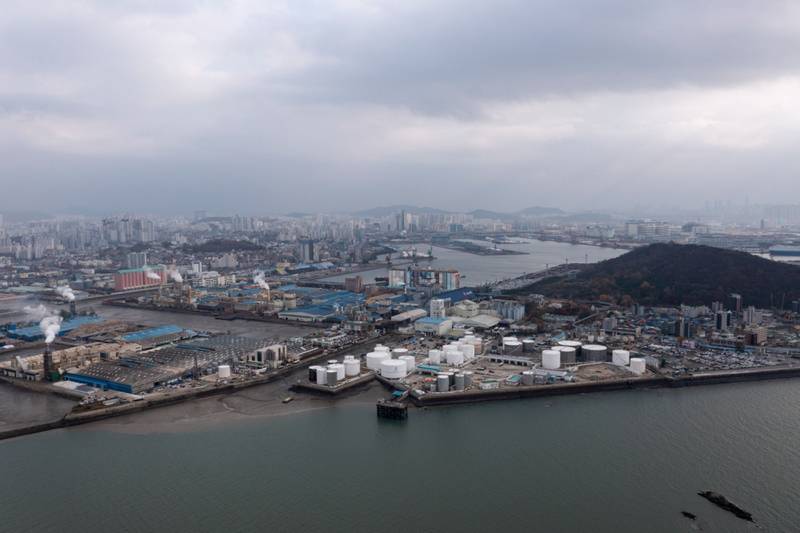Co-ordinated global effort to ease energy prices leaves markets uncertain

The decision by the US, the largest producer of crude, and some of the world's biggest oil-importing countries to release millions of barrels of strategic oil reserves to bring down high energy prices left markets in uncertainty.
In response, oil prices surged on Tuesday following the announcement by the White House that the US and oil-importing countries including India, the UK, Japan and South Korea, would release a total of 80 million barrels of crude on to the market.
Crude commodity prices are 60 per cent higher than at the start of the year due to the continuing economic recovery in many parts of the world. Higher oil prices are politically sensitive in many global economies, particularly in the US, which is heading into midterm elections. The price of oil at the pump is a critical factor in deciding the outcome of such polls.
Brent, under which two-thirds of the world's crude is traded, rose 3.5 per cent, settling at $82.25 per barrel on Tuesday following the announcement of the SPR release. West Texas Intermediate, which tracks US crude grades, jumped 2.65 per cent to close at $78.50 per barrel.
The benchmarks, however, remained muted on Wednesday, with Brent down 0.63 per cent at $81.79 per barrel at 3pm UAE time and WTI down 0.43 per cent at $78.16 per barrel.
The US will release 50 million barrels from its strategic reserves — stocks of crude maintained to meet emergency needs. The US intends to bring forward a planned sale of 18 million barrels of crude and will exchange the remainder with buyers in an oil market repo.
India, which has been at the forefront of lobbying to bring oil prices down, will make a smaller commitment and release 5 million barrels. Japan will also bring 5 million barrels to the market, while South Korea will add 3.5 million barrels.
China has yet to announce a number, but the world's biggest importer of crude is likely to release between 7 million and 15 million barrels. The UK, which is also backing the US initiative, will add a nominal amount of 1.5 million barrels.
“With President Biden using most of his discretionary quota available last night from the SPR, the amounts released over the time frame will not be enough to materially impact oil prices and, clearly, markets also thought the same,” said Jeffrey Halley, senior market analyst for Asia Pacific at Oanda.
Market observers will now turn to Opec+, the supergroup of producers led by Saudi Arabia and Russia, to weigh their response to the unprecedented release from the US and its key crude importers.
The group will meet on December 2 to evaluate the last increment of their plan to return 2 million barrels per day of supply to the markets by the end of the year, reversing historic cuts to offset low demand during the pandemic.
